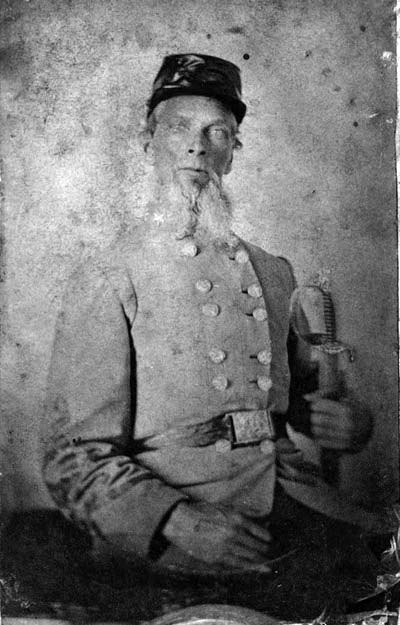Confederate General Martin Green Bragged About His Invincibility, he was Quickly Proven Wrong
The sheer scale of the American Civil War meant many seemingly improbable events happened. Some of these include bullets colliding and fusing in mid-air, a Union general and the Confederate president sharing the same name, glow in dark wounds, and, in one case, a general who claimed who couldn’t be killed, seconds before being killed.
The man was Confederate General Martin Green, and his terribly timed last words are one of many strange stories that came out of the bloody conflict.
General Martin Green

Martin Green was born on June 3 1815 in Fauquier County, Virginia. 21 years later he moved to Lewis County, Missouri, opening a sawmill with his brothers. In Missouri, he became the Judge of the Lewis County Court, while his brother became a Senator in Missouri’s Democratic Party.
When the Civil War began in 1861, Green was a prominent Missouri secessionist. He recruited a large group of civilians loyal to his cause and established a cavalry regiment, which he used unsuccessfully against David Moore‘s Union Home Guard Regiment.
After this, he was involved in an attack against Lexington that proved to be a success but was then present at a series of defeats.
A year into the war Green was promoted to brigadier general. He was placed in command of John S. Bowen’s division during the Siege of Vicksburg that saw Union Major General Ulysses S. Grant attack the city of Vicksburg, which had been heavily fortified. As one of the only remaining major Confederate strongholds on the Mississippi River, the battle was pivotal.
Green’s death
On June 27, 1863, Green was busy inspecting Vicksburg’s defenses during the siege. Green carried out his inspection as if there was not an army of men attempting to kill him and his troops, and was warned to keep his head down.
To this warning, he responded, “A bullet has not yet been molded that will kill me.” In perhaps one of the worst cases of ‘speaking too soon,’ almost straight after his reply, he was shot in the head by a Union sharpshooter, dying immediately.
General John Sedgwick
A similar incident happened to General John Sedgwick, who fought for the Union. Sedgwick would become one of the Union’s highest-ranking officers to die in the American Civil War.
Sedgwick’s grandfather was also a general, serving alongside George Washington. With such heritage, he was bound to become a member of the military. Before the Civil War even started Sedgwick had fought in Seminole Wars, the Mexican-American War, the Utah War, and the Indian Wars. When the Civil War broke about, Sedgwick was a colonel and assistant inspector general of the Military Department of Washington. He was promoted to brigadier general in August 1861.
At the Battle of Antietam, Sedgwick and his division were sent by Major General Edwin V. Sumner on a poorly prepared assault and were shot three times. He was out of action for a few months while his wounds healed.
During the Battle of Spotsylvania Courthouse, Sedgwick was directing artillery placements when he came under fire from Confederate sharpshooters positioned around 900 meters away.
His men dived for cover to avoid the hail of fire but this angered Sedgwick, who, like Green, was not phased by the very real danger of enemy bullets.
He said to his men “What? Men dodging this way for single bullets? What will you do when they open fire along the whole line?”
However, his men continued to remain in cover. Despite being more familiar than most with being shot, he was ashamed of their actions.”Why are you dodging like this? They couldn’t hit an elephant at this distance,” Sedgwick said. Shortly after these famous last words, the general slumped over dead with a shot to the head.
A capable and well-respected general, Sedgwick’s death hit General Grant hard. Upon hearing the bad news, Grant asked, “Is he really dead?”
Post a Comment
0 Comments